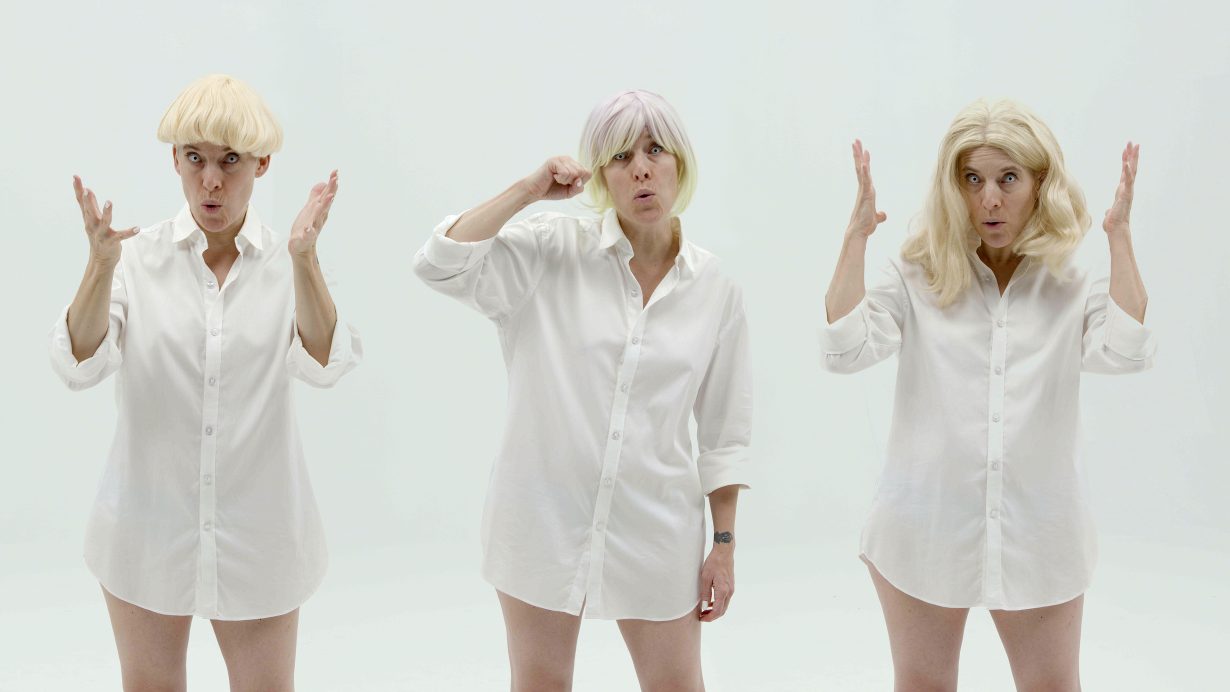LATEST: Senator drops the clause limiting criticism of Israel after widespread protest

Berlin city council says recipients of government arts funding will have to contractually reject ‘any form of anti-Semitism’, a move which many say will effectively smother Palestinian support.
The city would take the International Holocaust Remembrance Alliance’s controversial definition of antisemitism, which includes overtly ‘targeting of the state of Israel, conceived as a Jewish collectivity’ and ‘drawing comparisons of contemporary Israeli policy to that of the Nazis’.
In a statement Joe Chialo, the German city’s senator for culture and social cohesion, said: ‘Art is the glue that holds our society together, it’s the exchange of ideas with one another, a source of friction that sparks debate and stimulates thought. Art is free! But not without rules. Cultural institutions and funding bodies are responsible for ensuring that public money is not used to promote racist, anti-Semitic, anti-queer or otherwise exclusionary expression. We want to ensure this with these newly implemented measures, such as the modification of funding guidelines, as well as commitment and anti-discrimination clauses to funding awards.’
Chialo’s promise of artistic freedom, however, has been tested in recent months with a series of artists, writers and thinkers having events across the country cancelled because of their support of Palestine. In November the Saarlandmuseum in Saarbrücken cancelled an exhibition of Candice Breitz, the Berlin-based Jewish South African artist, saying it would not show the art of any artist ‘who does not clearly recognise Hamas’s terror as a rupture of civilisation’. Breitz took to social media to demonstrate the many times she publicly condemned Hamas, while also criticising the military reaction of the Israeli government after the 7 October attack on Israel.
In reaction to the proposed funding Breitz said: ‘Meinungsfreiheit (freedom of opinion) and Kunstfreiheit (freedom of expression) are being eroded before our eyes. If that matters to you as an artist, cultural worker, intellectual or as any person who cares about culture and/or basic civil rights, this is an important initiative to support. Consider making a modest contribution to the current conversation by adding your signature. Silence will not protect any of us from what is happening. This is not the time to put career before principle, or to prioritise personal comfort above threats that can only effectively be engaged collectively.’
An open letter, signed by Breitz, as well as artists Iman Issa, Oliver Laric, Jesse Darling, critics Raimar Stange and Ana Teixeira Pinto and over three thousand others, stated: ‘The fight against racism goes hand in hand with the fight against anti-Semitism, as well as against Islamophobia. It is our concern to fight all these battles in solidarity and independently of current events. However, the horrific events of October 7, the war in Gaza and the heated polemical debates that are taking place in Germany on this subject give rise to fears that clauses such as those discussed here will only serve to create an administrative basis for disinviting and canceling events with cultural workers who are critical of Israel. This also affects Jewish cultural workers in Germany who show solidarity with Palestine, who advocate for dialogue and peace-oriented solutions, and who are confronted with accusations of anti-Semitism by non-Jewish Germans – an extremely shameful and absurd constellation!’
A deep dive by Jewish Currents last year, written prior to the 7 October attacks, cast light on the fevered atmosphere the Israel-Palestine conflict has played in the German cultural sphere, highlighting the role of Germany’s antisemitism commissioners, most of whom are not Jewish, in the arbitration of what is and what is not antisemitic.
22 January: Berlin city council announced today that the prospective anti-discrimination clause will no longer apply: ‘Due to legal concerns that the anti-discrimination clause is not legally secure in this form, it will no longer be used in grant notifications with immediate effect’, the council outlined in a press release.
Senator Joe Chialo said: ‘There is no question about it: I will continue to work for the non-discriminatory development of Berlin culture. But I have to take seriously the legal and critical voices that saw the introduced clause as a restriction on artistic freedom. We need the debates now more than ever and there is no doubt in my mind that it is time to act. I encourage discourse and build on non-partisan cooperation.’
This announcement represents a win for artists and cultural workers in Germany who publicly criticised the clause. Calls for a wider cultural boycott have gathered momentum online, backed most prominently by Nobel laureate Annie Ernaux, artist Lawrence Abu Hamdan and novelist Lana Bastašić, who in protest terminated her contract with S. Fischer Verlag.